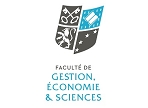Présentation
Concepts of Microeconomics, including consumer theory, producer theory, market equilibrium, monopoly and monopolistic competition as well as concepts of Macroeconomics (including exchange rates and model of short run open economy). (Nevertheless, this concepts will be reviewed in class)
This course aims at expanding the students’ knowledge and understanding of: economic tools, international trade theory and policy, exchange rates determination and exchange rates policy, foreign exchange market, balance of payments and international financial investment.
Upon completion of this course, students are expected to understand economic theory and its predictions. In addition to learning content, students shall also develop an ability to use these theories.
Introduction
The Theory of International Trade:
- The Basic Theory Using Demand and Supply
- Comparative Advantage
- Factor availability and Factor Proportions are key
- Who Gains and Who Loses from Trade?
- Scale Economies, Imperfect Competition, and Trade
Trade Policy:
- Analysis of a Tariff
- Non-Tariff Barriers to Imports
- Arguments For and Against Protection
- Pushing Exports (time permitting)
Understanding Foreign Exchange:
- Payments among Nations
- The Foreign Exchange Market
- Forward Exchange and Financial Investment
- What Determines Exchange Rates?
- Government Policies & Foreign Exchange Market (time permitting)
Modalités
International economics addresses important and interesting current events and issues. Hopefully, this course as well as newspaper and magazine articles will convince you, if you are not already!
The different chapters follow the textbook recommended for this course: International Economics by Thomas Pugel. The course is delivered in English. When you do not understand a word, make sure to search in an English-French dictionary. Please, do not wait the end of the semester to do it!
Ressources
<ol> <li><strong>Paul Krugman, Maurice Obstfeld and Marc J. Melitz</strong>, <strong><em>Economie Internationale</em>, Theory and Policy, Pearson, De Boeck Université (it is available at the library).</strong></li> <li>Dominick Salvatore, <em>International Economics</em>, Wiley, (the 9th edition is at the library).</li> <li>Thomas Pugel, <em>International Economics</em>, McGraw Hill Irwin (it is in French at the library). 17th edition and previous editions can be also used</li> <li>Robert J. Carbaugh, <em>International Economics</em>, Thomson South-Western, (the 10th edition is at the library).</li> </ol> You can also use a textbook in French if you have too much difficulties studying in English such as :|| <ol> <li>Bernard Guillochon, Annie Kawecki, Frédéric Peltrault and Baptiste Venet, Economie Internationale, Dunod, 8th edition</li> </ol> <ul> </ul>






